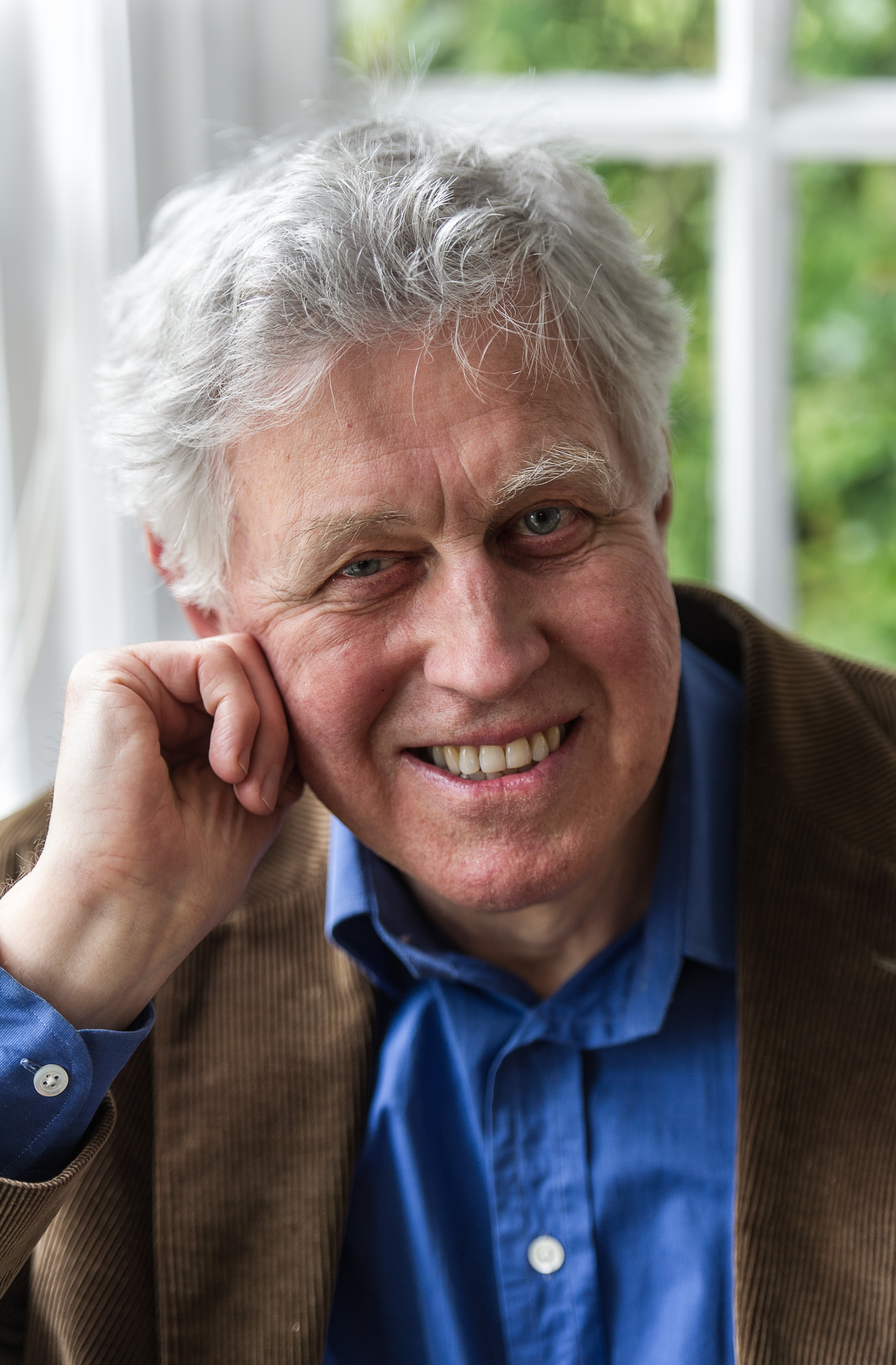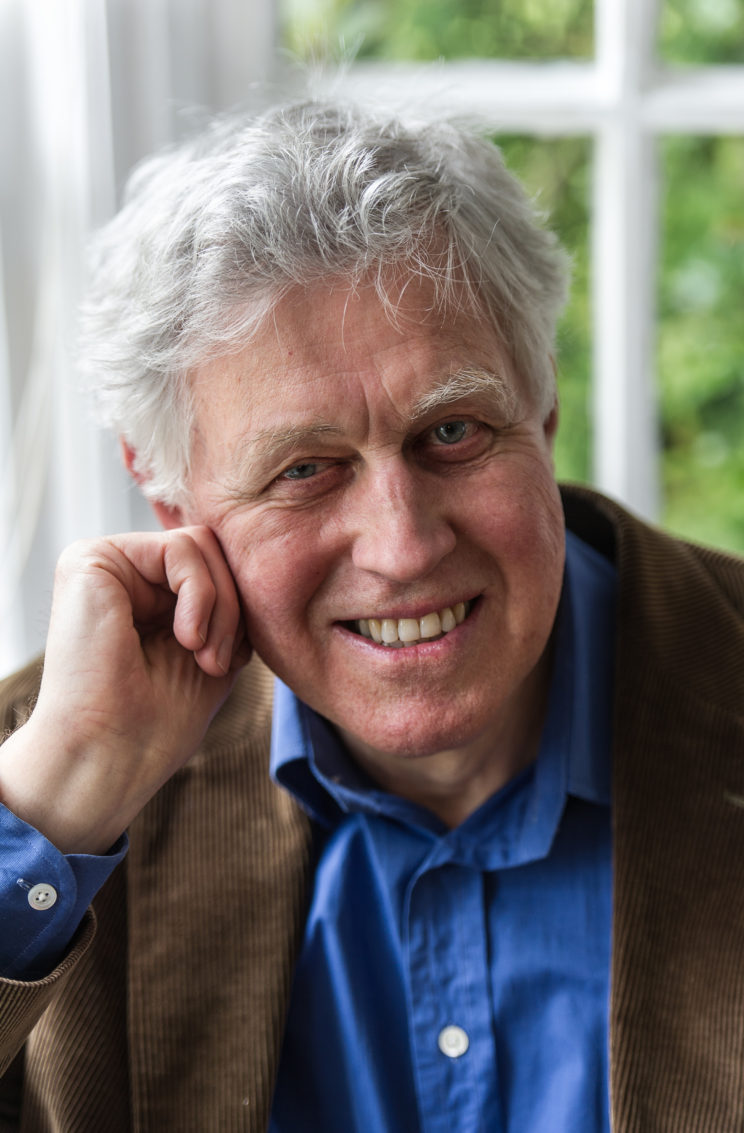Tuesday 2 April at 7:30
Orchestra of the Swan
Stratford Playhouse
David Matthews
Winter Remembered
Mahler
Symphony No.10 (mvt 1 arr for strings)
Mozart
Adagio and Fugue in C minor, K.546
Britten
Variations on a Theme of Frank Bridge
Kenneth Woods
conductor
Carmen Flores
viola
Next week’s concert with the Orchestra of the Swan includes David Matthews’ wonderful concertino for Viola and Strings, ‘Winter Remembered,” but, in a very real way, the whole programme is about David and his music.
Our concert concludes with Britten’s Variations on a Theme of Frank Bridge. It is one of the great works of the 20th Century in any genre, one of the most impressive and moving sets of variations I know of, and one of the most touching artistic homage’s to a mentor I can think of. Britten was such a phenomenal talent that it is hard to imagine he ever needed teaching. Britten’s Phantasy Quartet for Oboe and Strings reveals the eighteen-year-old Britten to already be a finished master at his craft. And yet, Bridge played a key role in Britten’s creative and moral development from the time Britten became his pupil at the age of fourteen. Bridge’s pacifism, manifest in his masterpiece, the mournful Oration for Cello and Orchestra, surely helped set Britten on the path that would one day lead to his own War Requiem. Most of all, Britten revered Bridge’s absolute mastery of craft, something that would also be a hallmark of his music. The Variations come from 1937 when Britten was all of twenty-four. One can only imagine Bridge’s astonishment at the magnitude of such a tribute.
A generation later, a young David Matthews was introduced to Britten by Deryck Cooke. More of him anon. Cooke introduced Matthews to Donald Mitchell, who, in turn, introduced Matthews to Britten. David writes about this period of his life:
“One person he introduced me to was Donald Mitchell, who had just started Faber Music, primarily to publish the music of Britten. I did some copying and editorial work for Faber’s, and in the spring of 1966 was asked to complete the ‘rehearsal score’ of Britten’s The Burning Fiery Furnace when Martin Penny who was preparing it fell ill. Later that year Britten asked me if I would like to do more work for him, so for the next three years I became a part-time assistant to his regular music assistant Rosamund Strode, and spent extended periods in Aldeburgh working at The Red House.
“Britten was the first composer I had met, and as an apprentice in his studio, watching how he worked, I learned how a composer functioned; I didn’t quite realise at the time that I could not have had a better example, and that this was an invaluable training for a composer.”
It’s fascinating to see how powerful these simple generational connections are. From Bridge to Britten, from Britten to Matthews. David recognised this was where his musical destiny was:
“I knew that I was not destined to follow the current avant-garde, but to continue along a path similar to that which Britten and Tippett were following, and also one rooted in the Viennese Classics – Beethoven above all – and also in Mahler…
And so to Mahler. The concert includes the Adagio from Mahler’s Tenth Symphony. Most readers of this blog will know that Mahler didn’t live to complete this work and that it wasn’t heard complete until Deryck Cooke made his first Performing Version of it in 1960 for a BBC radio broadcast, which subsequently persuaded Mahler’s widow, Alma, to allow further performances and work on the piece.
Among those early radio listeners to Cooke’s Performing Version was David and his brother Colin. The two young composers sought out Cooke and offered to help with the revision of the Tenth. Their work with him continued until Cooke’s death in 1976, and since then, they’ve both remained deeply involved with the piece. When I conducted Mahler 10 for the first time at Colorado MahlerFest, I invited David to come as the festival’s visiting composer. To have him around during our rehearsals and to hear him speak at the symposium about his work on the piece was incredibly inspiring.
Of course, we cannot fit a Mahlerian sized orchestra in the Stratford Playhouse, nor would the other music on this concert allow for a complete performance of Mahler’s 85 minute score. But we are able to play the ingenious string ensemble version of the Adagio (the only movement Mahler completed) made in 1971 by conductor Hans Stadlmair. In preparing for tonight’s concert, I’ve taken great care to incorporate the many corrections and revisions to the piece that David and Colin have come up with since Stadlmair’s version was made. You can call this the Stadlmaier-Cooke-Matthews-Matthews-Wadl-Woods version if you like. This is one of the most moving pieces of music ever written. To think that it was nearly lost to us after his death is pretty staggering.
Finally, there is David’s beautiful viola concertino, Winter Remembered. The piece is a kind of artistic response to the opening melody of Schubert’s last song cycle, Die Winterreise.
“The title Winter Remembered is from a poem by the American poet John Crowe Ransom and of course makes a nice allusion to Winterreise as well as being not too far distant in its subject matter from the Wilhelm Müller poems that Schubert set. “
It’s one of David’s pieces where the connections to the Viennese classics he mentions above run far deeper than simply a musical quotation. Those links to Britten and those links to Mahler all reach back to the same roots in Schubert and Beethoven.
Ransom’s poem was new to me. I leave you with his words:
Winter Remembered
Two evils, monstrous either one apart,
Possessed me, and were long and loath at going:
A cry of Absence, Absence, in the heart,
And in the wood the furious winter blowing.
Think not, when fire was bright upon my bricks,
And past the tight boards hardly a wind could enter,
I glowed like them, the simple burning sticks,
Far from my cause, my proper heat and center.
Better to walk forth in the frozen air
And wash my wound in the snows; that would be healing;
Because my heart would throb less painful there,
Being caked with cold, and past the smart of feeling.
And where I walked, the murderous winter blast
Would have this body bowed, these eyeballs streaming,
And though I think this heart’s blood froze not fast
It ran too small to spare one drop for dreaming.
Dear love, these fingers that had known your touch,
And tied our separate forces first together,
Were ten poor idiot fingers not worth much,
Ten frozen parsnips hanging in the weather.
John Crowe Ransom


Wonderful post, Ken.
The poem is haunting. “A cry of Absence, Absence, in the heart/ And in the wood the furious winter blowing.” That reminds me of King David’s cry, “Absalom! Absalom!” I wonder if the story of Absalom’s death (after getting stuck in a tree) is a reference point for the poem.